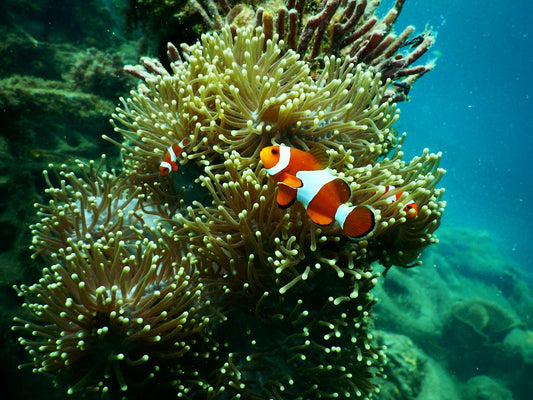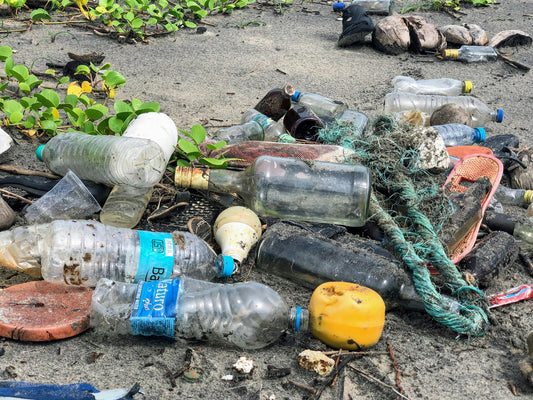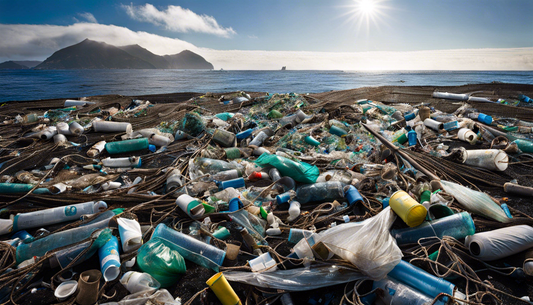Share
From Foul to Fuel: The Caribbean may hold a beneficial solution to the sargassum seaweed problem. A familiar sight on Grenada's beaches, these unfortunate deposits are usually let rot and spoil, but innovative biotech approaches are proposing a more constructive use for these invasive marine wastrels.
The Sargassum Invasion: For many years, the citizens of Soubise, a fishing village in Grenada, have been struggling against the tide of sargassum. This floating seaweed that ends up on their shores has a pungent odor and interrupts fishing activities. However, the government of Grenada, in alliance with the European Union, sees a silver lining in this marine invasion. They are hoping to transform the sargassum seaweed into fertilizer, fuel, and even plastic, possibly creating a multibillion-dollar market in the process.
Applying Biotech: The UK-based aquafarming business, Seafields, has come up with an ingenious solution to intercept the advancing sargassum before it can reach land. By preventing its rot, they save the Caribbean governments and hotels a fortune in beach clean-ups and offer a lucrative alternative for bioplastic manufacturers. According to John Auckland, CEO of Seafields, Sargassum can boost crop growth by 10% to 14%, and its uncomplicated reproductive cycle makes it easy and cost-effective to farm.
Fuelling the Future: In Grenada's True Blue Bay Resort’s House of Chocolate bakery, the biogas produced from sargassum seaweed is already in use. A company called SarGas has installed their biodigester in the bakery, the magic working mechanism breaks down the seaweed into biogas and fertilizer, providing a sustainable and cost-effective alternative to diesel. Their efforts have been rewarded with government approval to establish a large-scale biogas facility likely to dispense power to the island.
Seaweed Salvation: The Grenadan government's commitment to sargassum solutions is clear, with promises to amass 10,000 tons of it by 2026. Fishers and farmers have already started integrating it into their livelihoods for its proven positive outcomes. Despite the necessity of protecting beaches and tourism industry interests, for the residents of Soubise, a mitigation strategy for the unappealing odor of rotting sargassum cannot arrive soon enough.
The Sargassum Invasion: For many years, the citizens of Soubise, a fishing village in Grenada, have been struggling against the tide of sargassum. This floating seaweed that ends up on their shores has a pungent odor and interrupts fishing activities. However, the government of Grenada, in alliance with the European Union, sees a silver lining in this marine invasion. They are hoping to transform the sargassum seaweed into fertilizer, fuel, and even plastic, possibly creating a multibillion-dollar market in the process.
Applying Biotech: The UK-based aquafarming business, Seafields, has come up with an ingenious solution to intercept the advancing sargassum before it can reach land. By preventing its rot, they save the Caribbean governments and hotels a fortune in beach clean-ups and offer a lucrative alternative for bioplastic manufacturers. According to John Auckland, CEO of Seafields, Sargassum can boost crop growth by 10% to 14%, and its uncomplicated reproductive cycle makes it easy and cost-effective to farm.
Fuelling the Future: In Grenada's True Blue Bay Resort’s House of Chocolate bakery, the biogas produced from sargassum seaweed is already in use. A company called SarGas has installed their biodigester in the bakery, the magic working mechanism breaks down the seaweed into biogas and fertilizer, providing a sustainable and cost-effective alternative to diesel. Their efforts have been rewarded with government approval to establish a large-scale biogas facility likely to dispense power to the island.
Seaweed Salvation: The Grenadan government's commitment to sargassum solutions is clear, with promises to amass 10,000 tons of it by 2026. Fishers and farmers have already started integrating it into their livelihoods for its proven positive outcomes. Despite the necessity of protecting beaches and tourism industry interests, for the residents of Soubise, a mitigation strategy for the unappealing odor of rotting sargassum cannot arrive soon enough.
We hope you enjoyed this article. Please feel free to leave a comment below if you want to engage in the discussion.
If you want to read more like this, make sure to check out our Blog and follow us on Instagram. If you are interested in truly sustainable products, check out our Shop.
Check out the original source here.








